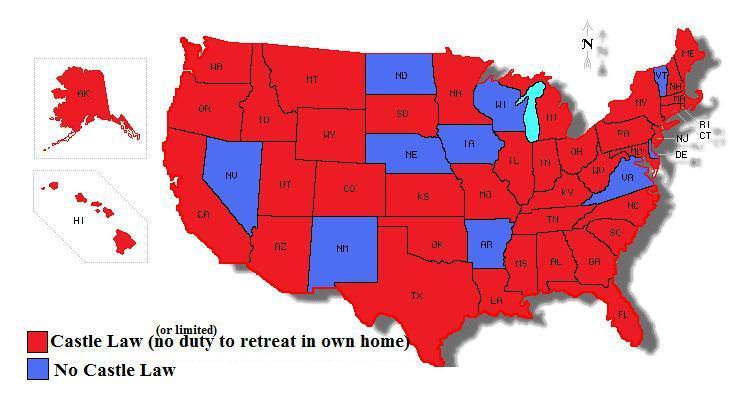Defend Your Home with the Castle Doctrine—Know Your Rights.

Defend Your Home wiht the Castle Doctrine—Know Your Rights
Understanding your legal rights when it comes to home defense is crucial in today's world. The Castle Doctrine is a self-defense principle that allows you to protect your home and family from intruders. This article explains the basics of the Castle Doctrine, its benefits, practical tips for execution, and real-world case studies to help you navigate your legal rights effectively.
What is the Castle Doctrine?
The Castle Doctrine is a legal doctrine that justifies a person's use of reasonable force, including deadly force, against an intruder in their home. this principle is grounded in the idea that a person's home is their “castle,” and they have the right to protect it without obligation to retreat. While laws vary from state to state,the fundamental tenet remains consistent: homeowners are generally not required to flee when threatened within their dwelling.
key Features of the Castle Doctrine
- Immediate Threat: You must genuinely believe that an intruder poses an immediate threat to your safety or the safety of others.
- No Duty to Retreat: In many states, homeowners do not need to retreat before using force to defend themselves.
- Home Protection Only: The doctrine typically applies only within a person's home; different standards may apply in public spaces.
- State Variability: Specific laws and applications of the Castle Doctrine can vary widely by state.
Benefits of the Castle Doctrine
Understanding and utilizing the Castle doctrine can provide multiple benefits:
- Legal Clarity: Knowing your rights can empower you to act confidently in dangerous situations.
- Psychological Safety: The legal assurance of being able to defend your home can enhance feelings of security.
- Deterrence: Burglars may think twice about targeting homes when they know homeowners can protect themselves legally.
Practical Tips for Homeowners
To make the most of your rights under the Castle Doctrine, consider the following tips:
- Know Your State Laws: Familiarize yourself with your state’s specific regulations surrounding the Castle Doctrine.
- Invest in Home Security: Enhance your home’s security with alarms, surveillance cameras, and strong locks to deter intruders.
- Prepare Your Family: discuss your emergency plan with family members so everyone knows how to react in a crisis.
- Consider Self-Defense Training: Equip yourself with self-defense skills to handle potential threats more effectively.
Case Studies: Real-Life applications of the Castle Doctrine
Understanding the Castle Doctrine is essential, but seeing it in action can provide valuable insights.Let’s look at a couple of noteworthy cases.
| Case name | Location | Outcome | Legal Precedent |
|---|---|---|---|
| State v. Davis | Tennessee | Justified Use of Force | Established Clear Right to Stand Ground |
| Wright v. State | Florida | Acquittal | Reinforced No duty to Retreat |
First-Hand Experience: A Homeowner’s Story
Many homeowners have faced situations where they had to rely on their rights under the Castle doctrine. Here’s a brief account of one such experience:
Jessica, a single mother living in a suburban area, awoke one night to the sound of glass shattering. A stranger had broken into her home. Jessica had taken self-defense classes and was familiar with her local laws. She grabbed her phone to call 911 and armed herself with pepper spray. As the intruder approached her bedroom, she felt empowered by her knowledge of the Castle Doctrine. Knowing she had the right to defend herself without retreating, she prepared to confront the intruder with caution and confidence.
Ultimately, Jessica was able to scare the intruder away before law enforcement arrived, thanks to her awareness and preparedness. Her understanding of her rights under the Castle Doctrine played a vital role in the situation's resolution.
Conclusion: Know and Defend Your Rights
the Castle Doctrine is an essential legal protection that empowers homeowners to defend themselves and their properties. By understanding the specific laws in your state, preparing accordingly, and remaining informed, you can effectively use the castle Doctrine to protect your home and loved ones. Remember, the knowledge of your rights is just as crucial as the ability to defend your space. Always stay informed, prepared, and ready to protect your castle.




Responses